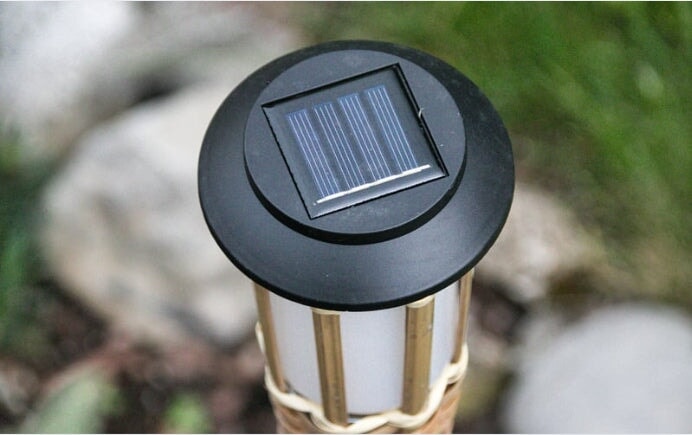
Solar Lights & Sunlight: What You Need to Know
Solar lights have become a go-to choice for homeowners looking to light up their outdoor spaces without increasing their electricity bill. They're sleek, energy-efficient, and eco-friendly—plus, they come in styles that suit everything from minimalist patios to charming garden paths. But how much sunlight do they actually need? And will they still work in shady areas or cloudy weather? Let's break down everything you need about solar lights and sunlight.
How Solar Lights Work
Before diving into sunlight requirements, it helps to understand how solar lights function.During the day, sunlight is captured by the integrated solar panel and transformed into electrical power that is stored in a rechargeable battery. As daylight fades, a sensor triggers the light to turn on, powered by the stored energy.
Simple in design yet brilliant in function, solar lights are a sustainable lighting solution—so long as they're charged properly.
Do Solar Lights Need Direct Sunlight?

The short answer is yes, but not always.
Solar lights perform best when they receive direct sunlight for at least 6–8 hours daily. Direct exposure allows the solar panel to charge the battery fully, ensuring bright and consistent illumination through the night. However, that doesn't mean they won't work in cloudy conditions or partial shade—they may not shine brightly or last as long after dark.
On cloudy days, the solar panel still collects light at a reduced capacity. In shaded areas, charging will depend on how much indirect sunlight reaches the panel. The key is placement—installing your solar lights where they get the most light during the day will help you get the most out of them.
Maximizing the Power of Outdoor Solar Lights
If you're using outdoor solar lights, follow these tips to make sure they operate efficiently—rain or shine:
-
Position strategically: Place the lights in open areas with direct access to sunlight. Avoid heavy shade from trees, fences, or buildings.
-
Angle the panels: Tilt-adjustable solar panels toward the sun's path to absorb as much light as possible throughout the day.
-
Clean the panels: Dirt, dust, and leaves can block sunlight from reaching the panel. Your lights will continue to charge effectively with a little cleaning every few weeks.
-
Use high-quality batteries: Rechargeable batteries may eventually lose their capacity to retain a charge. Replacing them every 1–2 years will extend the life of your solar lights.
-
Choose efficient models: Not all solar lights are created equal. Look for models with high-efficiency solar panels and long-lasting lithium-ion batteries for the best performance.
Do Solar Lights Work in Winter or Rainy Weather?

Yes—but with a few limitations.
Solar lights can still work during winter or on rainy days, though they may operate for shorter periods due to reduced sunlight. Some lights are specifically designed for year-round use and come with features like larger panels or enhanced battery capacity to compensate for seasonal changes.
Weatherproofing is also important. Choose lights rated IP65 or higher to ensure they stand up to rain, snow, and humidity. This way, your garden or walkway stays lit even when the forecast isn't on your side.
Conclusion
When it comes to choosing solar lights that perform well in all kinds of sunlight and weather conditions, True Lumens stands out. True Lumens is renowned for providing fashionable and useful lighting solutions using premium materials, elegant designs, and cutting-edge solar technology. Whether you're looking to line your driveway, brighten up a garden path, or add ambiance to your patio, their solar lighting products deliver dependable results—even on cloudy days.
So, if you're ready to enjoy the benefits of solar power without sacrificing performance, True Lumens is a bright choice you can trust.